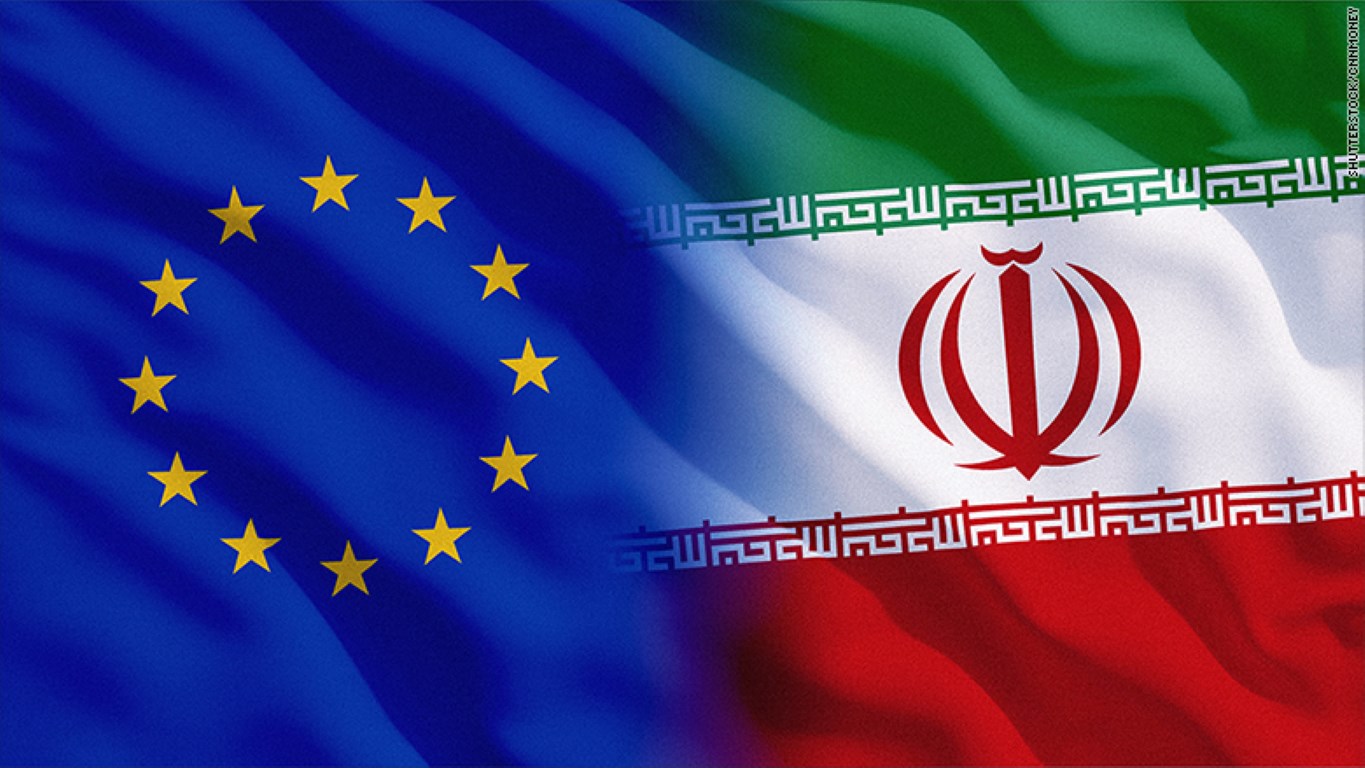EU to Shield Iran from US Sanctions
June 8, 2018 | Expert Insights

The European Union has amended legislation to protect interests in Iran against US sanctions after Washington pulled out of the nuclear deal.
The legislative update supports the EU’s pledge to uphold the terms of the Joint Comprehensive Plan of Action signed in 2015.
Background
Iran’s nuclear program was first launched in the 1950s, with help from the United States. Iran signed the Nuclear Non-Proliferation Treaty in 1970. Support from the West continued until the Iranian
Revolution and the ascent of Ayatollah Khomeini into power in 1979. Iran’s nuclear program has been a source of concern for the international community since then. During the International Atomic Energy Agency’s (IAEA) investigations in the country, it was revealed that Iran had not declared a number of its nuclear activities and was not in compliance with the Non-Proliferation Treaty. In 2006, the country also refused to suspend its uranium enrichment program. The United Nations consequently imposed a number of sanctions on the nation. By 2015, the nation had lost billions of dollars due to these sanctions; an estimated $100 billion in oil revenue alone. It had also lost out on Foreign Direct Investment.
Joint Comprehensive Plan of Action:
The Joint Comprehensive Plan of Action (JCPOA) is a comprehensive agreement between the P5+1 countries (France, China, Russia, US, UK, and Germany), European Union and Iran to prevent nuclear arms development in Iran in exchange for removal of sanctions. October of 2025 was chosen as the Termination Day.
Under the JCPOA, Iran will have to reduce their stockpile of enriched Uranium by 97% and undertake enrichment only at Naantz. The Plutonium enrichment core at Arak would have to be dismantled. A 5-year heavy arms embargo and an 8-year ballistic missile embargo would remain in place. The International Atomic Energy Agency (IAEA) would conduct routine checks to keep track of Iran’s nuclear program. Finally, sanctions imposed by the United States and EU on Iranian oil, banking, and financial sectors would be lifted.
The Trump administration withdrew from the deal in May 2018 which led to the imposition of secondary sanctions which target international banks that conduct business with Iran’s oil sector.
Analysis
President Trump’s withdrawal does not threaten the existence of the deal - as the EU has signaled its commitment to the deal if Iran continued to adhere to the requirements. It was formally endorsed by the UN Security Council, incorporating it into international law. So far, Iran has been in full compliance, according to the IAEA. Recently, they have boosted enrichment within the limitations. The European Commission, the executive branch of the EU, has initiated plans to activate the blocking statute - legislation that seeks to shield EU companies that continue doing business with Iran, and gives them a framework to recover any damages suffered as a result of US sanctions. The statute essentially forbids EU persons from complying with US extraterritorial sanctions.
The President of the European Commission, Jean-Claude Juncker said: "In Sofia, we saw a show of European unity. As long as the Iranians respect their commitments, the EU will of course stick to the agreement of which it was an architect - an agreement that was unanimously ratified by the United Nations Security Council and which is essential for preserving peace in the region and the world. But the American sanctions will not be without effect. So we have the duty, the Commission and the European Union, to do what we can to protect our European businesses, especially SMEs.”
EU governments and members of the European Parliament have two months to object to the measures, after which they will come into effect in August. Since the lifting of sanctions, Iran's oil exports have increased by more than 1 million barrels per day (bpd). The value of trade between the EU and Iran soared from $9.2bn in 2015 to $25bn in 2017. Although Iran trades with India and China, the EU is the single largest market for Iranian oil exports.
However, French multinational oil and gas company Total has announced that it will not continue operations in Iran if it is not granted a waiver from US sanctions. The EU struck many deals in the fields like energy, finance, civil aviation, and infrastructure among others. These deals face setbacks from the secondary sanctions imposed by the US. By isolating Iran’s central bank from the global banking system, the US can negatively affect the trade of oil. Iran has, thus, requested European countries to trade in Euros to bypass financial restrictions on their banks.
Reuters reported that Brent crude reversed losses on Tuesday, after hitting its lowest price in nearly a month following a report stating the US government asked Saudi Arabia and other major exporters to increase oil output. OPEC supply tends to more directly influence Brent, whereas US crude futures are more closely tied to US supply. OPEC members are scheduled to meet in Vienna in July to discuss possible increase in output to cover for Iran and Venezuela’s shortfall.
Assessment
Our assessment is that the EU’s protection of interests in Iran is imperative for the JCPOA to progress. Since Iran is in full compliance, it is necessary to maintain the current trajectory; failure of which might see Iran’s withdrawal and the international community’s incapability to monitor their nuclear program. The deal has strained ties between the EU and the US following the latter’s imposition of tariffs on EU steel imports.








Comments